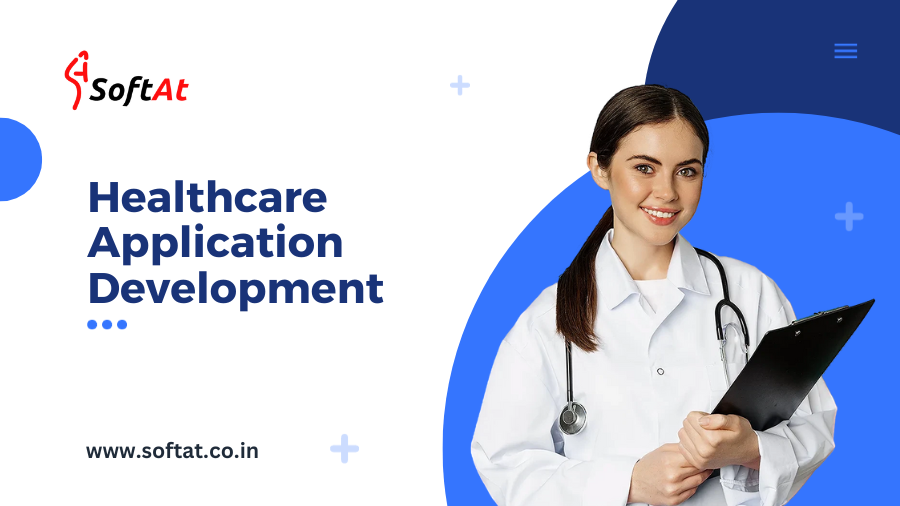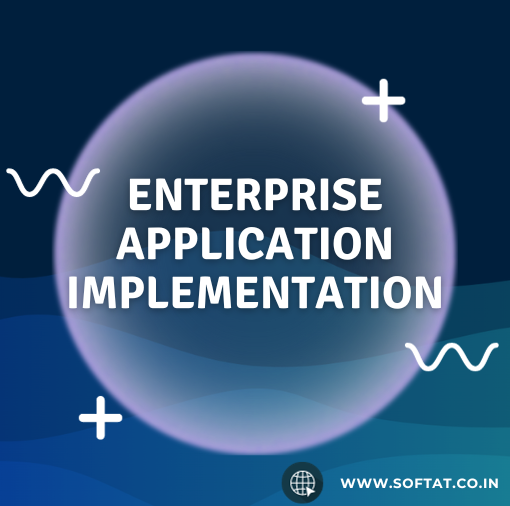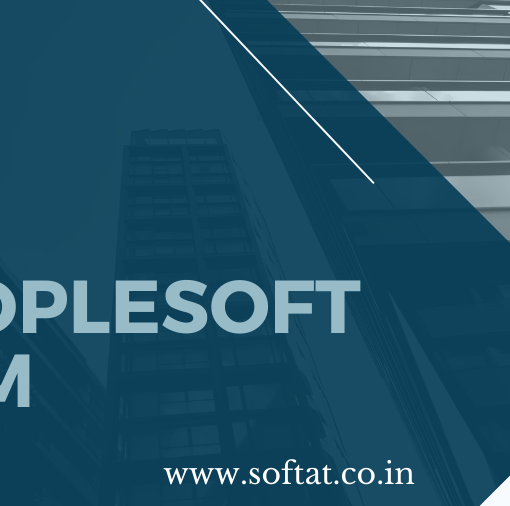Introduction
The healthcare landscape is undergoing a profound transformation, largely driven by the advent of healthcare applications. These digital tools are not only reshaping how patients engage with healthcare services but are also streamlining processes for healthcare professionals. In this exploration, we’ll delve into the significance, challenges, and innovations in healthcare application development.
The Importance of Healthcare Application Development
In an era where digital solutions are becoming integral to our daily lives, healthcare application development stands out for its potential to revolutionize patient care and administrative processes within the healthcare industry.
Enhancing Patient Care and Engagement
Healthcare applications play a pivotal role in enhancing patient care by providing tools for remote monitoring, medication management, and access to personalized health information. They empower individuals to take an active role in their well-being.
Streamlining Healthcare Processes and Administration
From appointment scheduling to electronic health record (EHR) management, healthcare applications streamline administrative tasks, reducing the burden on healthcare providers and improving overall operational efficiency.
Key Features of Successful Healthcare Applications
The success of healthcare applications hinges on the incorporation of key features that cater to the unique needs of the healthcare industry.
User-friendly Interface
A user-friendly interface is paramount to ensure that patients, caregivers, and healthcare professionals can navigate the application effortlessly. Intuitive design promotes user engagement and adoption.
Integration with Electronic Health Records (EHR)
Seamless integration with EHR systems ensures that healthcare professionals have access to up-to-date and comprehensive patient information, enabling more informed decision-making.
Secure Messaging and Communication
Security is non-negotiable in healthcare applications. Secure messaging and communication features facilitate collaboration between patients and healthcare providers while safeguarding sensitive health data.
Challenges in Healthcare Application Development
Despite the promise of healthcare applications, developers face unique challenges in this domain.
Ensuring Data Security and Compliance
Healthcare applications must adhere to stringent data security standards, with a particular focus on compliance with the Health Insurance Portability and Accountability Act (HIPAA). Protecting patient privacy is paramount.
Achieving Interoperability with Existing Systems
Interoperability remains a challenge, as healthcare applications need to seamlessly integrate with existing healthcare systems and technologies. Bridging these gaps ensures a cohesive healthcare ecosystem.
Technological Innovations in Healthcare Applications
As technology evolves, healthcare applications are incorporating innovative features that redefine patient care.
Telemedicine and Virtual Consultations
Telemedicine capabilities allow patients to connect with healthcare professionals remotely, opening up access to medical advice and consultations from the comfort of their homes.
Wearable Technology for Health Monitoring
The integration of wearable devices enables continuous health monitoring, providing real-time data on vital signs and allowing for proactive healthcare interventions.
The Role of Artificial Intelligence (AI) in Healthcare Applications
Artificial Intelligence is a game-changer in healthcare application development, offering advanced capabilities for personalized care.
Predictive Analytics for Disease Prevention
AI-driven predictive analytics analyze patient data to identify potential health risks, enabling preventive measures and personalized interventions.
Personalized Treatment Plans Based on AI Insights
AI algorithms analyze patient data to recommend personalized treatment plans, taking into account individual health profiles and medical histories.
User Experience in Healthcare Applications
User experience is central to the success of healthcare applications, requiring a delicate balance between technology and human-centered design.
Designing Intuitive and Accessible Interfaces
Intuitive design ensures that users, including those with limited technological literacy, can navigate the application with ease. Accessibility features cater to a diverse user base.
Incorporating Patient Feedback for Continuous Improvement
Patient feedback is invaluable for refining healthcare applications. Regularly incorporating user insights ensures that the application remains aligned with user needs and expectations.
Regulatory Landscape and Compliance in Healthcare Application Development
Navigating the complex regulatory landscape of healthcare is a critical consideration for developers.
Adhering to HIPAA Regulations
Compliance with HIPAA regulations is non-negotiable. Healthcare applications must implement robust security measures to safeguard patient data and ensure compliance with privacy standards.
Navigating the Complex World of Healthcare Compliance
Beyond HIPAA, developers must navigate various compliance standards, ensuring that their applications adhere to the regulatory requirements of different healthcare jurisdictions.
Success Stories in Healthcare Application Development
Examining success stories provides insights into the transformative impact of healthcare applications.
Case Studies of Impactful Healthcare Applications
Analyzing case studies showcases applications that have successfully addressed healthcare challenges, providing tangible benefits to patients and healthcare providers alike.
Learning from Both Successes and Challenges
Understanding the journey of healthcare applications involves learning from both successes and challenges. Each experience contributes to the collective knowledge of the industry.
Future Trends in Healthcare Application Development
The future of healthcare application development is marked by emerging trends that promise to further enhance the impact of these digital tools.
Integration of Blockchain for Enhanced Security
Blockchain technology is gaining traction for its potential to enhance the security of healthcare data, providing a transparent and tamper-proof record of patient information.
Continued Growth of Remote Patient Monitoring
Remote patient monitoring, facilitated by healthcare applications and wearable devices, is expected to see continued growth, enabling proactive and personalized healthcare interventions.
Ensuring Security in Healthcare Applications
Security is paramount in healthcare applications, and developers must employ robust measures to protect sensitive health data.
Implementing Encryption and Secure Authentication
Encryption ensures that data is transmitted and stored securely, while secure authentication processes verify the identity of users, preventing unauthorized access.
Regular Security Audits and Updates
Regular security audits and updates are essential to address emerging threats and vulnerabilities, ensuring that the application remains resilient against evolving cybersecurity challenges.
Monetization Strategies for Healthcare Applications
Developers must consider viable monetization strategies to sustain the development and maintenance of healthcare applications.
Subscription Models for Premium Features
Implementing subscription models allows developers to offer premium features or services, generating recurring revenue to support ongoing development efforts.
Collaborations with Healthcare Providers for Enterprise Solutions
Collaborating with healthcare providers for enterprise solutions presents an opportunity for developers to tailor applications to the specific needs of healthcare institutions.
The Human Touch in Healthcare Application Development
While technology plays a crucial role, maintaining a human touch is essential in healthcare application development.
Balancing Technology with Empathy
Developers must strike a balance between technological innovation and empathy, ensuring that applications enhance the human connection between healthcare providers and patients.
Fostering Trust Between Patients and Healthcare Providers
Trust is the foundation of effective healthcare, and applications must prioritize features that foster trust between patients and healthcare providers.
The Impact of Mobile Platforms on Healthcare Applications
The prevalence of healthcare applications on iOS and Android platforms requires developers to consider platform-specific design considerations.
Design Considerations for Different Platforms
Tailoring applications for different platforms involves considering the unique design guidelines and user expectations of iOS and Android users.
Conclusion
In conclusion, healthcare application development stands as a transformative force in the healthcare industry. By enhancing patient care, streamlining processes, and embracing technological innovations, these applications are reshaping the way we approach healthcare. As we look ahead, the continued evolution of healthcare technology promises exciting possibilities for improved patient outcomes and enhanced healthcare experiences.
Frequently Asked Questions
- How do healthcare applications enhance patient care?
- Healthcare applications enhance patient care by providing tools for remote monitoring, medication management, and access to personalized health information.
- What are the key features of successful healthcare applications?
- Key features include a user-friendly interface, integration with electronic health records (EHR), and secure messaging and communication.
- What challenges do developers face in healthcare application development?
- Challenges include ensuring data security and compliance with regulations, as well as achieving interoperability with existing healthcare systems.
- How does Artificial Intelligence (AI) contribute to healthcare applications?
- AI contributes to healthcare applications through predictive analytics for disease prevention and personalized treatment plans based on AI insights.
- What are the future trends in healthcare application development?
- Future trends include the integration of blockchain for enhanced security and the continued growth of remote patient monitoring.
You may be interested in:
The Future of Machines: Trends and Predictions





